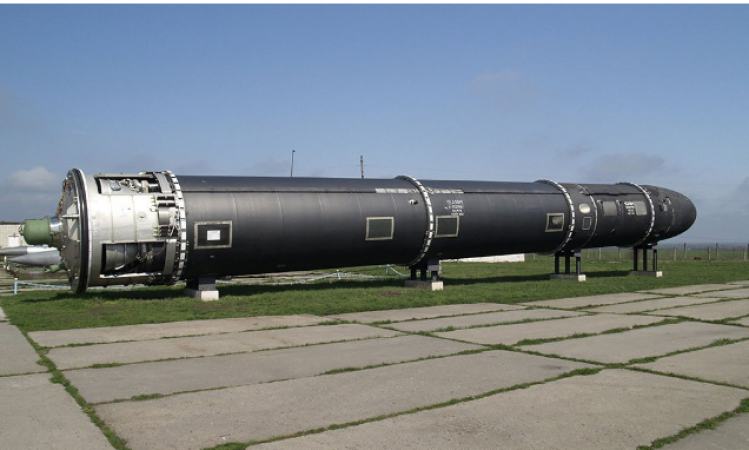
United Nations: When a crucial UN meeting on the historic Nuclear Non-Proliferation Treaty was initially scheduled to take place in 2020, there was already much conflict to discuss.
Now that Russia's war in Ukraine has revived fears of a nuclear conflict and heightened the urgency of trying to bolster the 50-year-old treaty, the pandemic-postponed conference will begin later this week.
Beatrice Finn, executive director of the Nobel Peace Prize-winning International Campaign to Abolish Nuclear Weapons, said: "This is a very difficult moment.
He claimed that the invasion by Russia, which was announced with ominous signs for its nuclear arsenal, "is very important to the treaty and is indeed going to put a lot of pressure on it." Future nuclear policy will be shaped by how governments respond to the situation.
Expectations are low for a crucial, if any, agreement during the four-week meeting that aims to build consensus on next steps.
Nevertheless, a UN official, who spoke on condition of anonymity because he was not authorized to speak publicly before the conference, said Swiss President Ignazio Cassis was among the attendees from at least 116 countries. Japan's Prime Minister Fumio Kishida and Fiji's Frank Bainimarama. And a dozen foreign ministers.
The Non-Proliferation Treaty, which has been in effect since 1970, is the most widely adopted of any arms control agreement. A total of 191 nations have participated.
Nations without nuclear weapons pledged not to acquire them, and the nuclear-armed nations of the United States, Britain, China, France, and Russia (then the Soviet Union) eventually agreed to negotiate with each other to get rid of their arsenals. agreed to. All supported the creation of a peaceful nuclear power system.
India and Pakistan received the bomb despite refusing to sign. North Korea agreed, ratified the agreement but later announced its withdrawal. A non-signatory Israel is believed to have a nuclear arsenal, although it neither confirms nor denies this.
The Nuclear Non-Proliferation Treaty has nonetheless been credited with limiting the number of nuclear entrants and serving as a framework for global cooperation on disarmament.
Since its peak in the mid-1980s, nuclear weapons have decreased by more than 75% globally. This reduction is largely due to the end of the Cold War between the US and the former Soviet Union. According to experts, most of the remaining weapons are in the US and Russia and their number is about 13,000 globally.
The 2020 conference was repeatedly postponed due to the coronavirus pandemic, despite meetings to review the performance of the treaty that were held every five years.
Russian President Vladimir Putin insisted that his country is "one of the most powerful nuclear powers" when he declared war on Ukraine in February, adding that any attempt at intervention would have "results you will never see". " A few days later, Putin issued an order to raise the alert level for Russia's nuclear forces, a decision that UN Secretary-General Antonio Guterres dubbed "bone-chilling".
He claimed that the possibility of nuclear war, which was previously unimaginable, exists once again.
According to Patricia Lewis, a former UN disarmament research official who is now at the international affairs think tank Chatham House in London, developments in Ukraine make for a difficult decision for the upcoming conference.
Governments will need to deal with Russia's actions and threats, she said, if they want to support the treaty and what it means. On the other hand, doing so may alienate the participants of the treaty.
Another troubling factor is that the war has raised concerns of some countries about not possessing nuclear weapons, especially since Ukraine once possessed but later dropped a variety of Soviet nuclear weapons.
Chinese Foreign Ministry spokesman Zhao Lijian said in Beijing that China would "firmly defend the legitimate security and development interests and rights of China and the developing world" in addition to working to reform the international nuclear regime.
Proponents of disarmament claim that if the world cannot speak with one voice, a coercive declaration from a large number of countries can send an important message.
Unhappiness with the Non-Proliferation Treaty in recent years has led to the creation of another agreement that explicitly prohibits nuclear weapons. Despite the absence of any nuclear-armed countries, it was ratified by more than 60 countries and came into force last year.
At a recent conference in Vienna, participants denounced "any and all nuclear threats" and signed a comprehensive plan that calls for the creation of an international trust fund for those harmed by nuclear weapons.
Russian Rouble slides 3-week low against dollar
Zelensky issues evacuation orders as fighting worsens in Ukraine's Donetsk
Russia claims to have invited UN and Red Cross experts to look into prisoner deaths